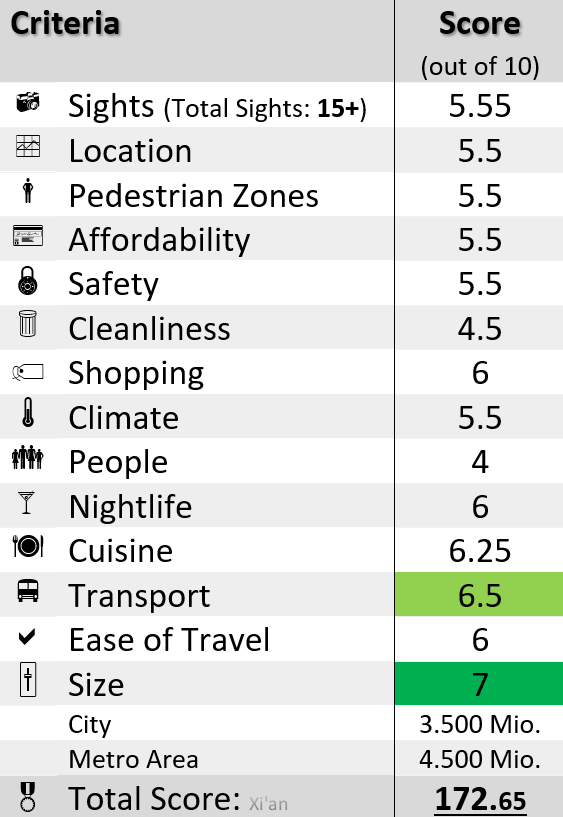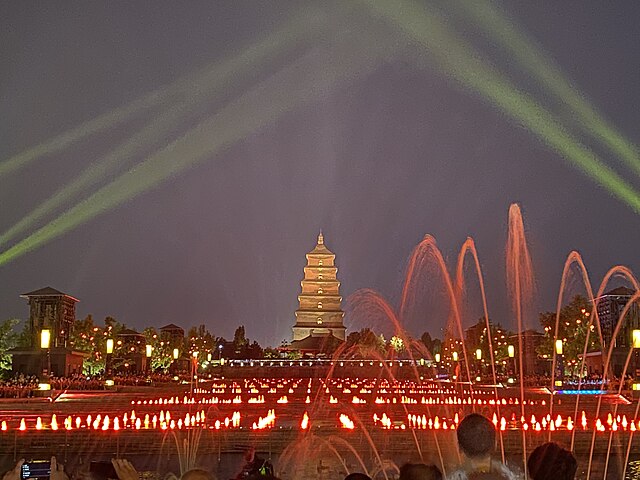by Aaron Zhu (format changed) / CC BY-SA 4.0
Home to the Terracotta Army of Emperor Qin Shi Huang
Table of Contents
A. About Xi’an
Xi'an, located in Shaanxi province, China, is one of the oldest cities in the country and served as the capital for several ancient Chinese dynasties, including the Qin and Tang.
The city is famous for the Terracotta Army, an extensive collection of life-sized sculptures representing the armies of the first Emperor of China, Qin Shi Huang.
Xi'an was the eastern terminus of the Silk Road, which facilitated trade and cultural exchanges between China and the rest of the world for centuries. The city's historical landmarks include the ancient City Wall, one of the best-preserved and longest ancient city walls in the world, and the Giant Wild Goose Pagoda, a key Buddhist site built in the 7th century.
Modern Xi'an is a bustling metropolis that blends rich historical heritage with rapid economic development, attracting millions of tourists and business visitors annually.
➕ The Good
Xi'an offers a variety of shopping experiences, from traditional markets to modern malls.
Furthermore, Xi'an's nightlife offers a range of bars, clubs, and night markets.
The city has a developing public transport system, including buses and an expanding metro.
➖ Negative Aspects
Cleanliness is a mixed aspect in Xi'an, with some areas well-maintained and others lacking. Air Pollution in winter detract from the experience.
B. Best Things to Do in Xi’an in 2025 (Detailed List with Photos and Information)
In total, we count more than 15 sights in Xi'an. The following sights and attractions contribute to a score of 5.55/10 in this most important category:
# THE MUSEUM OF QIN TERRA-COTTA WARRIORS AND HORSES 9 
The world-famous Terracotta Army – a UNESCO World Heritage Site since 1987 – is an enormous collection of ca. 8,000 life-size Terracotta sculptures in battle formations.
The Terracotta Museum consists currently of four main pits (No. 4 is empty) as well as the Hall of the two bronze chariots and horses.
Archaeological Museum 🌍 World Heritage Site: since 1987
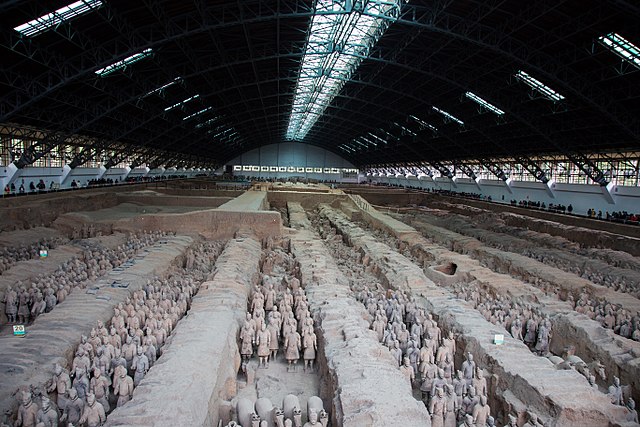
by Jmhullot / CC BY-SA 3.0
# Imperial Walls 6 
The Imperial Walls of Xi'an, originally constructed in 1370 during the Ming Dynasty, stand as one of the most well-preserved city walls in China, encircling 14 square kilometers of the historic city center.
Visitors can walk or cycle along the top of the walls, enjoying panoramic views of the ancient city and its modern surroundings.
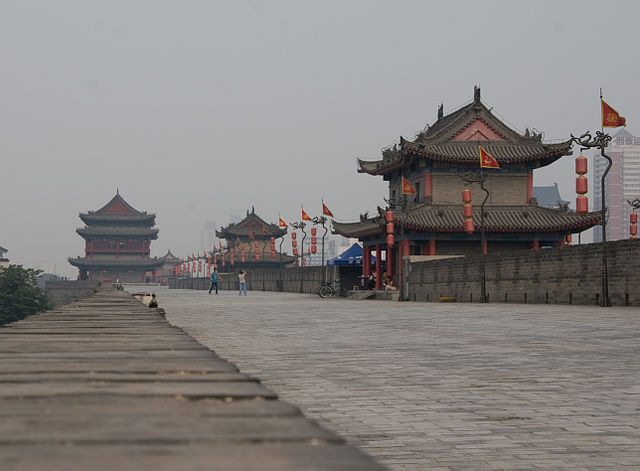
by Maros M r a z / CC BY-SA 3.0
# Great Mosque 5 
The Great Mosque of Xi'an, established in 742 during the Tang Dynasty, uniquely blends traditional Chinese architecture with Islamic design, serving as a significant religious and cultural site for the Hui Muslim community.
Covering an area of over 12,000 square meters, the mosque includes several courtyards and prayer halls adorned with intricate carvings and calligraphy.
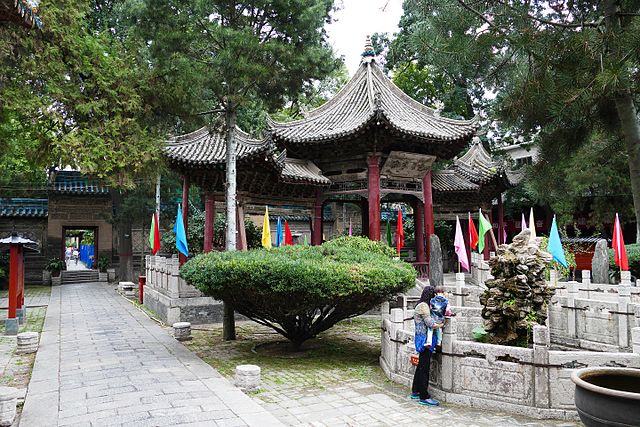
by Zossolino / CC 4.0
# BIG WILD GOOSE PAGODA 5 
The Big Wild Goose Pagoda, built in 652 during the Tang Dynasty, is a renowned Buddhist structure that was originally constructed to house sacred scriptures brought from India by the monk Xuanzang.
Standing at 64 meters tall, the pagoda offers visitors a chance to climb its seven stories for a panoramic view of Xi'an.
Pagoda 🌍 World Heritage Site: since 2014 (part of "Silk Roads: the Routes Network of Chang'an-Tianshan Corridor")
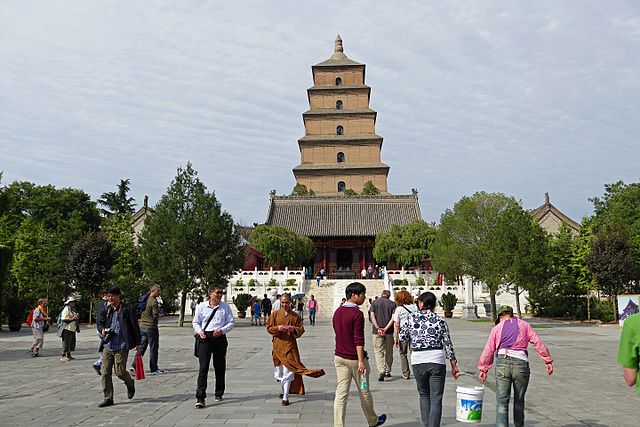
by Zossolino / CC 4.0
# Shaanxi History Museum 5 
The Shaanxi History Museum, opened in 1991, houses over 370,000 artifacts that showcase the rich history and cultural heritage of the Shaanxi region from the prehistoric era through the Tang Dynasty.
The museum's extensive collection includes ancient pottery, murals, and relics from the Zhou, Qin, Han, and Tang dynasties, providing a comprehensive overview of Chinese history.
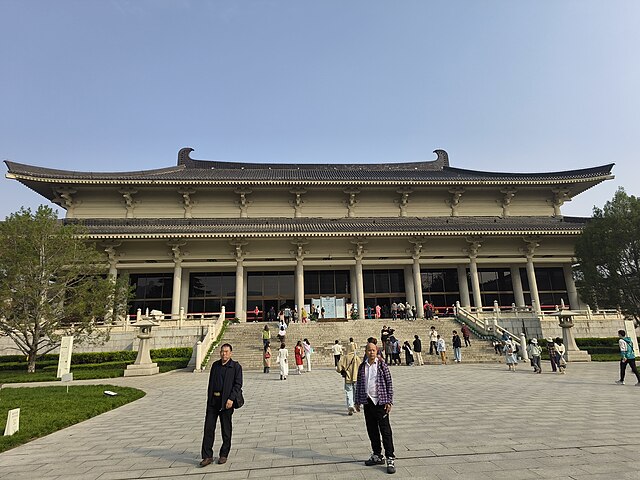
by 源義信 / CC BY-SA 4.0
# Muslim Quarter 5 
The Muslim Quarter in Xi'an, with its vibrant street markets and diverse food offerings, is a bustling area that highlights the cultural fusion and heritage of the city's significant Muslim population, dating back to the Silk Road era.
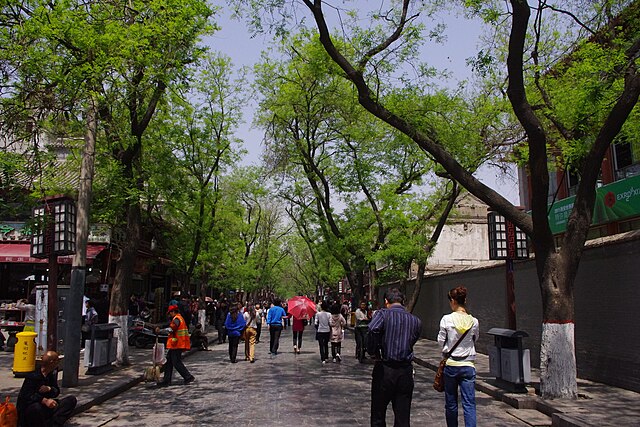
by Acstar / CC BY-SA 3.0
# Museum of the Stele Forest 5 
The Museum of the Stele Forest in Xi'an houses over 3,000 stone steles from the Han dynasty to the Qing dynasty, showcasing the extensive history of Chinese calligraphy and epigraphy.
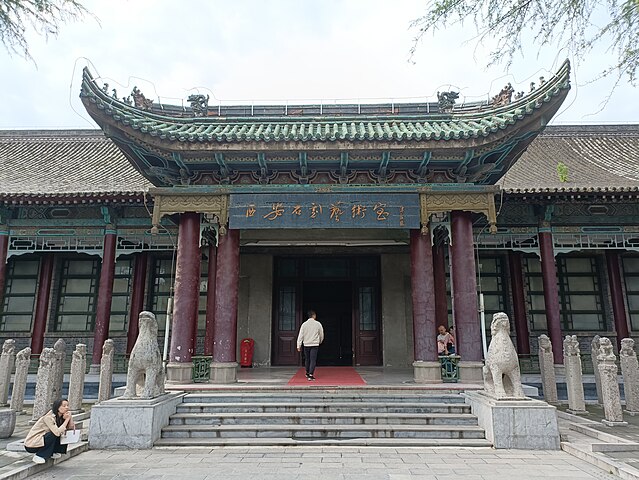
by Kcx36 / CC BY-SA 4.0
# Xi'an Bell Tower 4 
The Xi'an Bell Tower, built in 1384 during the Ming dynasty, stands at the city center as a prominent historical monument, marking the ancient intersection of the city's main roads.
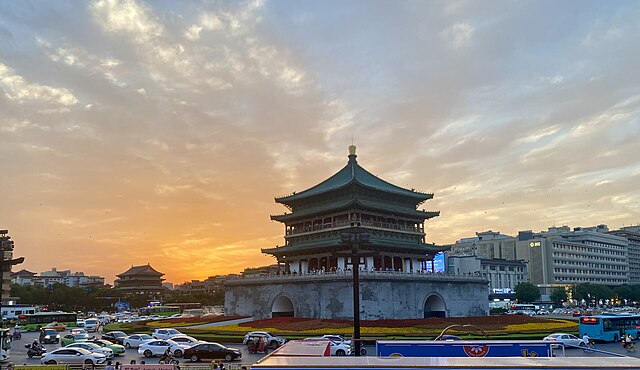
by Chinese ID via wikimedia / CC BY-SA 4.0
# Temple of the Eight Immortals 4 
The Temple of the Eight Immortals, also known as Ba Xian An, is Xi'an's largest Taoist temple, renowned for its intricate architecture and rich cultural heritage associated with the legend of the Eight Immortals.
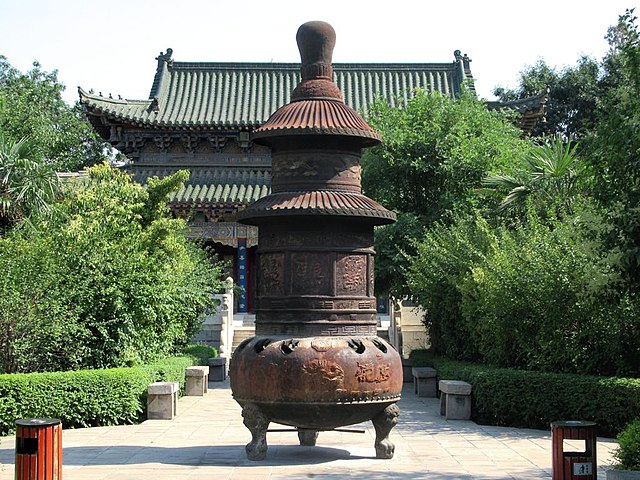
by David Stanley / CC BY-SA 2.0
#10 | Tomb of Emperor Jingdi (Hanyangling) 4 
The Tomb of Emperor Jingdi (Hanyangling) is an extensive mausoleum complex from the Han dynasty, featuring a remarkable underground museum that displays thousands of miniature terracotta figures and artifacts.
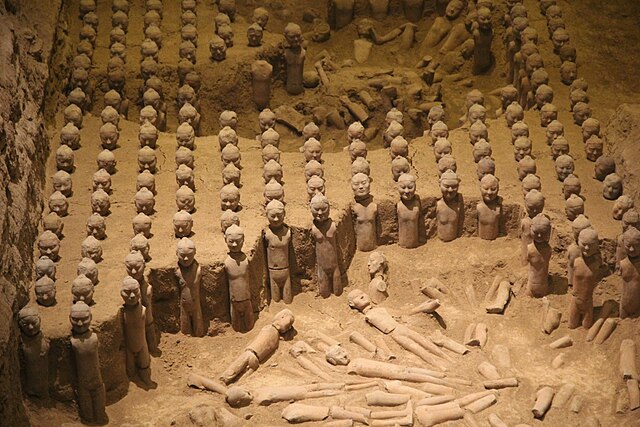
by Gary Lee Todd, Ph.D / CC BY-SA 4.0
C. Other Notable Sights and Attractions in Xi’an
#12 | Xi'an Museum 4 
The Xi'an Museum, located in the Small Wild Goose Pagoda complex, offers a comprehensive collection of over 130,000 cultural relics, including artifacts from the Tang dynasty and ancient Buddhist scriptures.
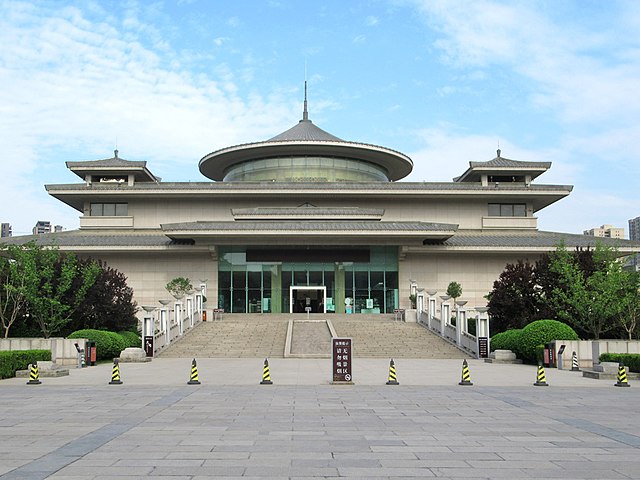
by David Stanley / CC BY-SA 2.0
D. Best Day Trips and Excursions from Xi’an
Mt. Huashan and Xiyue Temple 6 
Mt. Huashan is famous for its challenging hikes, five distinct peaks, and significant Taoist cultural sites.
Xiyue Temple, located at the foot of Mt. Huashan, is a historic Taoist temple from the Han Dynasty, notable for its architectural beauty and religious significance.
Mountain Distance from Xi'an: 120 km
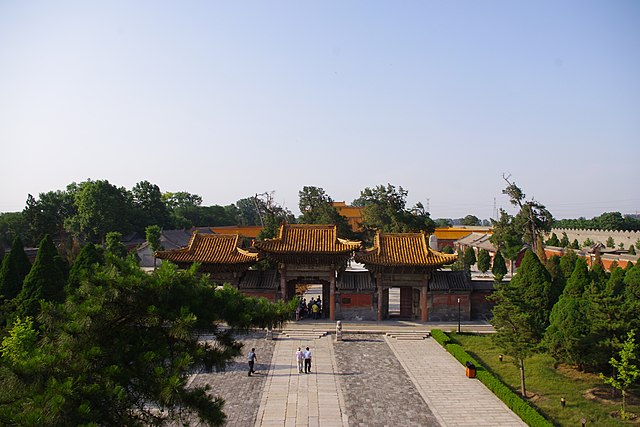
by Acstar/ CC 4.0
E. Top 10 List of the Best Things to Do in Xi’an (including close-by excursions)
To sum things up, these are the ten best sights we recommend to you when visiting Xi'an for at least three entire days:

